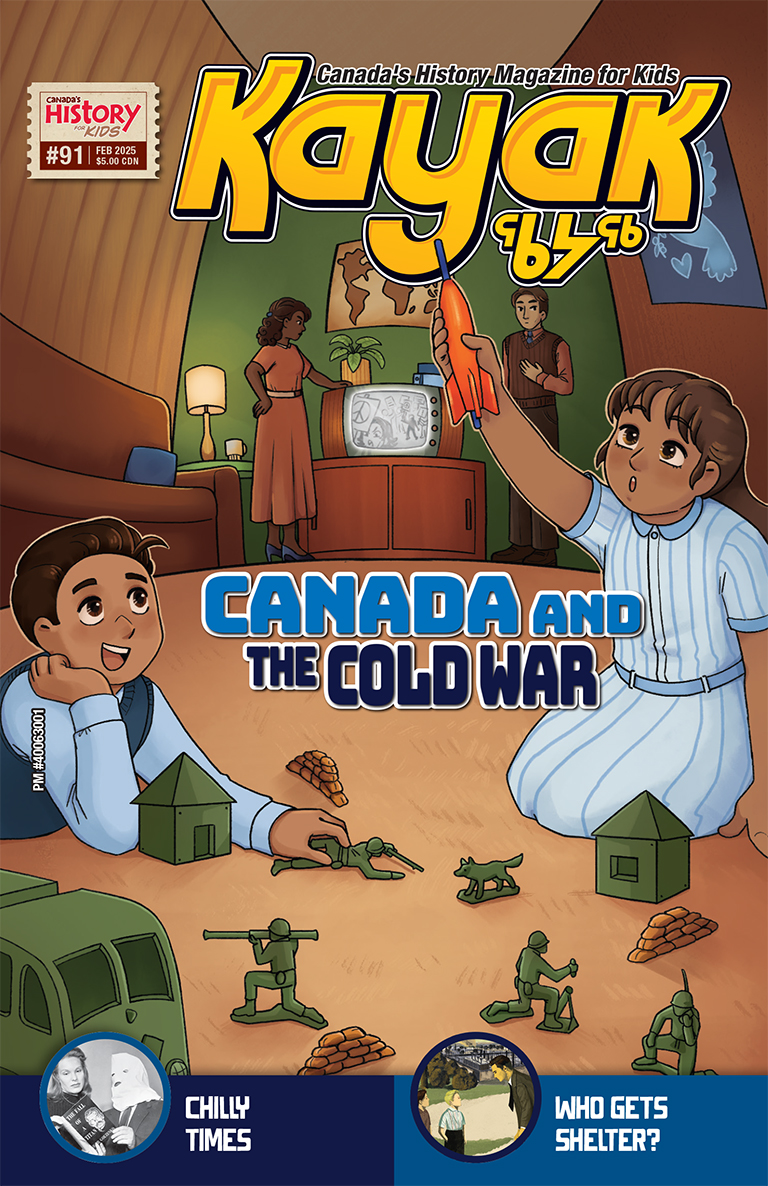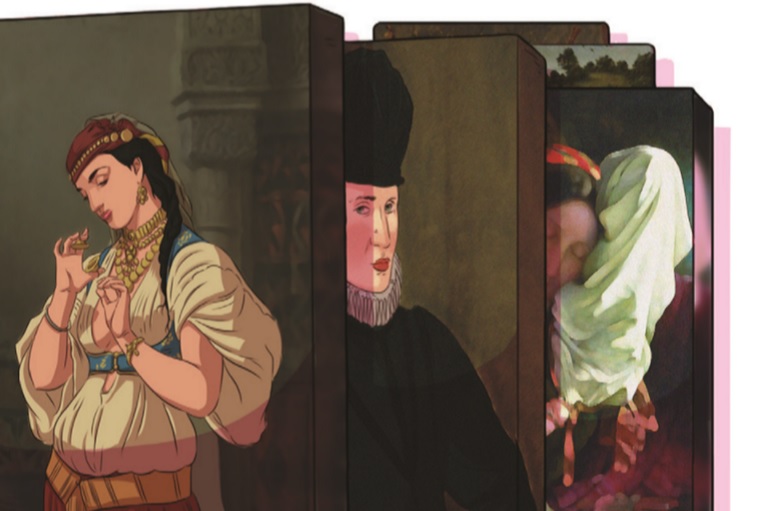Lesson Overview |

Grade Level: 9/10, 11/12 Subject Area: Social Studies/History/Geography/ELA/Civics Time Required: 1 lesson Magazine Issue: “Canada and the Cold War” (February 2025), Kayak: Canada’s History Magazine for Kids. |
How did the Cold War affect Canadians? Students will learn about key Cold War events by playing a card game, analyze the facts using the historical method, then engage in reflective questions such as: What happened during the Cold War? How did this affect Canadians then and now? Are there winners in war? Students will engage in a group discussion to consider the ethical questions of war and how the events of the Cold War continue to influence foreign policy and Canadians today. |
Historical Thinking Concept(s) |
- Establish historical significance
- Use primary source evidence
- Identify continuity and change
- Analyze cause and consequence
- Take historical perspectives
- Understand the ethical dimension of historical interpretations
|
Learning Outcomes |
Students will…- Understand the historical significance of events related to the Cold War and Canada.
- Consult the primary source evidence (pictures, documents) through the February 2025 issue of Kayak: Canada’s History Magazine for Kids.
- Examine and discuss the continuity, change and consequence of Cold War
events through use of the card game, making links with the magazine articles. - Analyze and discuss different historical perspectives.
- Evaluate and reflect upon the ethical dimensions of the Cold War through reflective questions and group discussion.
|
Background Information |
| The Cold War brought the world to the brink of a third world war and nuclear disaster. Protest movements grew in opposition to nuclear war. It had grave consequences for Canada and influenced Canadian politics at home and abroad. The impacts of the Cold War continue to be felt today. |
Lesson Activity |
PART IPART II- Pass out copies of Handout 1A and ask your students to fill it out by analyzing the information on the playing cards. Students will need to indicate the impact of each event on Canada and give it a rating of 1-5 based on how important it was and why.
- Pass out copies of Handout 1B. With the help of the playing cards and Kayak, have small groups discuss the reflective questions and fill out the handout.
- Ask the class to reflect on an ethical question related to the Cold War. Encourage students to think about some of the ethical issues raised in the articles they read, including spying, military allies and actions, nuclear weapons, forms of protest, and the Inuit experience. Here are some examples (teacher chooses only one):
- Is war sometimes the only answer?
- Can there be a clear winner in war?
- Can there be only one correct or “right side” in history?
- Should there be limits or restrictions to how people protest?
- Can government apologies right past wrongs?
- How can perspectives change over time, from generation to generation?
- Once students discuss the question that you have posed from the list above, ask them to think about their own ethical question relating to the Cold War and the events they have learned about.
- Using Handout 1C, have students in their groups write their questions, discuss the significance, and write their points of view. Each group will then ask the class one ethical question and engage in a discussion to reflect on how the events of the Cold War continue to influence foreign policy and Canadians today, with teacher guidance.
|
Extension Activity |
- Many people immigrated to Canada during and after the Cold War. Read the John Diefenbaker quote below and discuss its significance then and now:
“I am a Canadian, a free Canadian, free to speak without fear, free to worship in my own way, free to stand for what I think right, free to oppose what I believe wrong, or free to choose those who shall govern my country. This heritage of freedom I pledge to uphold for myself and all mankind.”
— John Diefenbaker (13th Prime Minister of Canada, June 21, 1957 – April 22, 1963)* |
Materials/Resources |
|
Assessment |
| Teachers can collect the handouts and grade. |







